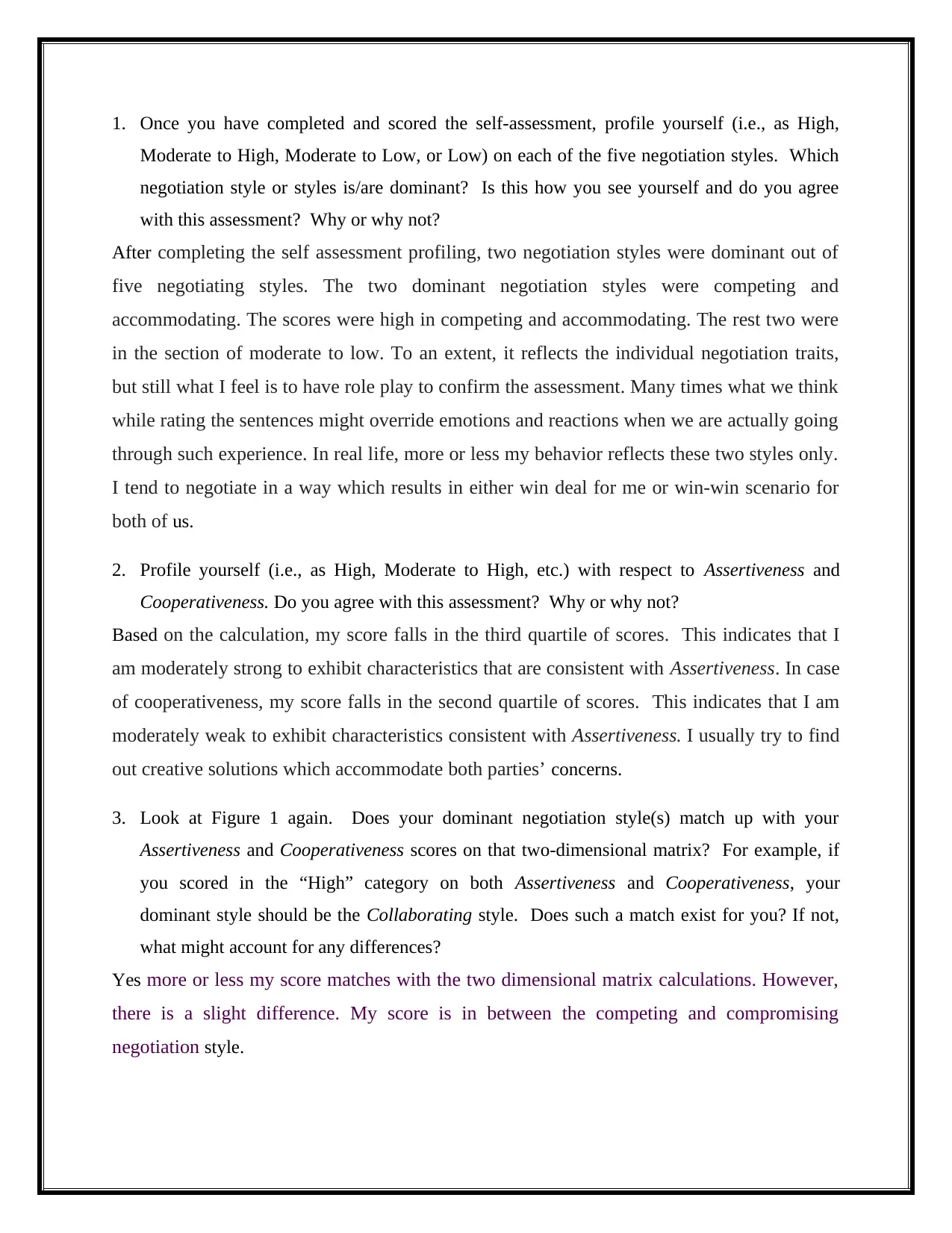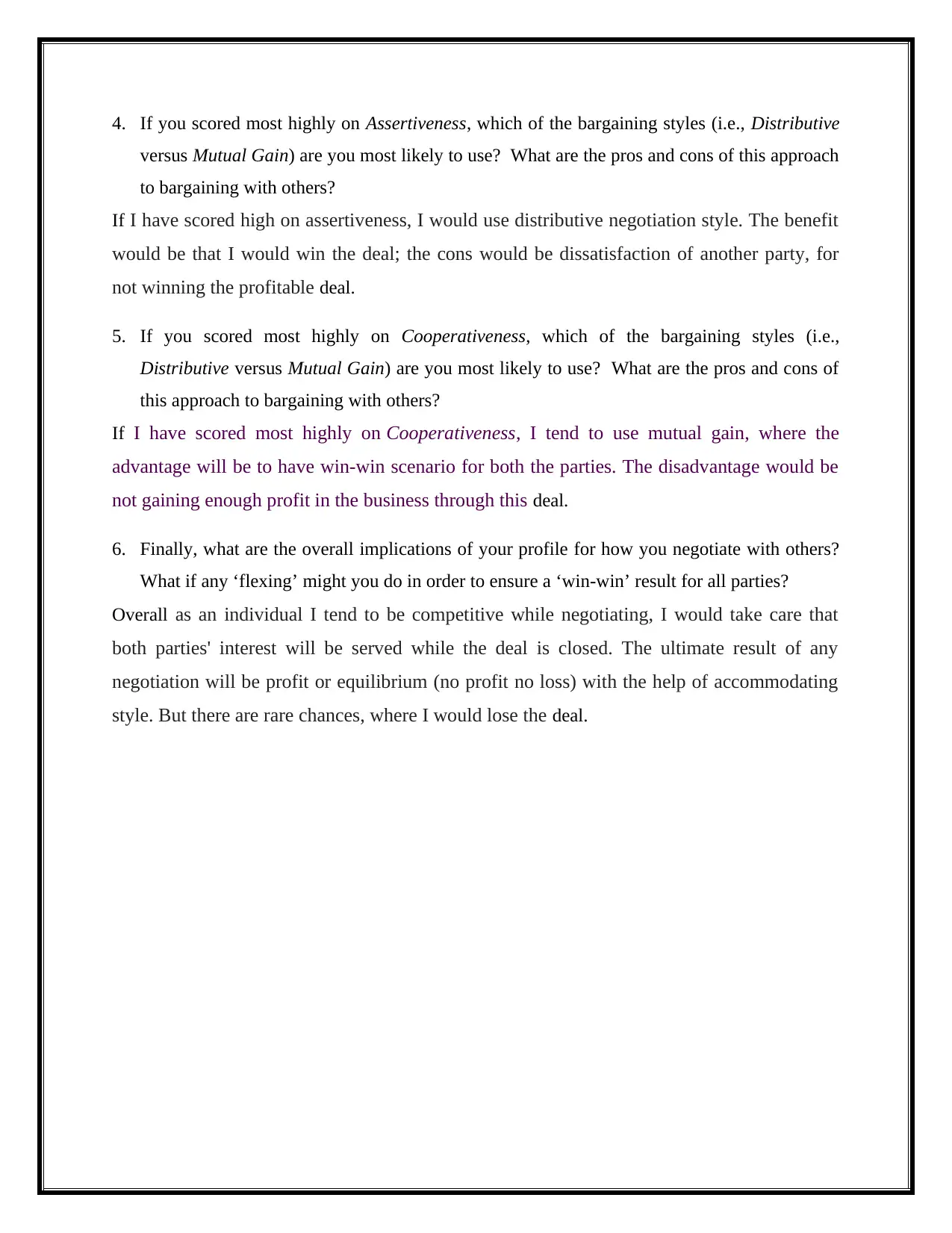Negotiation Style Self-Assessment and Implications for Leadership
VerifiedAdded on 2023/01/20
|2
|703
|48
Homework Assignment
AI Summary
This homework assignment analyzes a student's self-assessment of their negotiation style. The student identified competing and accommodating as dominant styles, which aligns with their moderately high assertiveness and cooperativeness scores. The analysis explores the implications of these styles, including the likelihood of using distributive negotiation in assertive situations and mutual gain in cooperative scenarios. The student recognizes the importance of adapting their approach to achieve win-win outcomes, aiming for profit or equilibrium in negotiations. This assignment provides insights into the student's approach to conflict resolution and their potential for effective leadership. The student reflects on their behavior in real-life situations and provides insights into the implications of their negotiation profile. This assignment is available on Desklib, a platform offering AI-powered study tools and resources.
1 out of 2





![[object Object]](/_next/static/media/star-bottom.7253800d.svg)